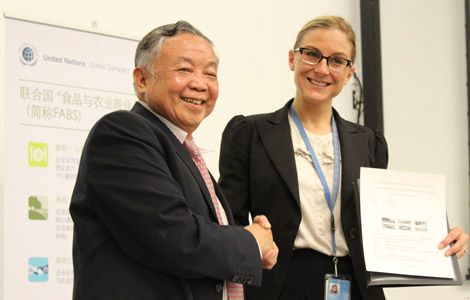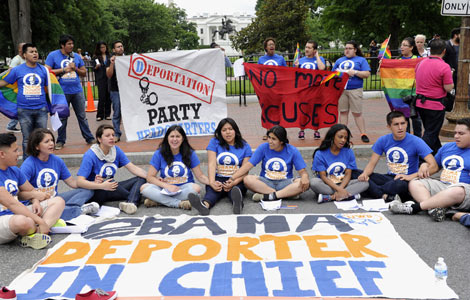US should 'attune itself to China's rise'
Updated: 2014-06-16 02:57
By Wu Jiao and Zhao Shengnan (China Daily)
|
||||||||
World needs to understand challenges facing Beijing
Q&A | K.Shanmugam
Editor note: China Daily recently interviewed Singaporean Minister for Foreign Affairs and Law K. Shanmugam. The following are excerpts of the interview.
Q: How do you evaluate the current bilateral relations?
A: Our strong economic relationship has become even stronger. Last year we were the largest foreign investor in China and your second-largest trading partner in ASEAN. You are our largest trading partner.
Our political relationship is very strong. And on the people-to-people relationships, tourism and other areas, the picture is rosy.
This year, our prime minister will visit twice: for APEC and the China-ASEAN Expo. Our president has been invited to the Youth Olympics in Nanjing this year, and next year we hope to mark the 25th anniversary of our diplomatic relationship and the 50th anniversary of Singapore's independence, with high-level state visits.
There was a "war of words" between China, the United States and Japan during Shangri-La Dialogue in Singapore. What's your perception?
Regional maritime issues were discussed during the Shangri-La Dialogue. That relationship between Beijing and Washington is the most critical relationship in the world. The second most important relationship in this region is that between Beijing and Tokyo. All three have to live with one another. That requires wisdom of the three capitals (Washington, Beijing and Tokyo).
China is a rising power. That is the fact. China doesn't want any external trouble right now, because the biggest issues facing China are within China. China is very rich, but has 1.3 billion people to manage. The development of the country still has some way to go. So given all these complications, most of us believe China doesn't want any external distractions. It is going to require wisdom, tact and diplomacy (for China) to deal with the current issues.
If Japan becomes too nervous, there's always a possibility of Japan arming itself even more. Is that in China's interests? Is that in the interests of Southeast Asia? Obviously not.
What are China's major challenges?
We tell the others, Americans and others, they have politics, but Chinese leaders also have politics. China's leaders cannot to be seen as soft on giving up sovereignty. You have a huge amount of internal challenges, you also have lots of netizens, and you have to manage and not to be seen to be soft. So the outside world ought to understand the huge challenges faced by Chinese leaders. That's why I said it's going to require a lot of wisdom in the three capitals.
What's ASEAN's role in dealing with maritime disputes between China and other ASEAN countries?
ASEAN as a whole doesn't intervene and cannot intervene regarding merits of territorial claims. Those are to be dealt with between the claimant states and China. It is in our vital interests that there's no serious physical clash, no rising tension, and disputes are sorted out in a peaceful way between the claimant states, in accordance with international law, including UNCLOS. ASEAN does not point fingers. It's neutral and credible. That can be ASEAN's role.
What's your opinion on the number of regional trade pacts, including the China-ASEAN FTA and the TPP? Are they competing with each other?
We are a significant global trading nation and one of the original members of the TPP. Subsequently, others came in and the US wants to come in. Singapore has publicly said that we think China should be part of the TPP. We would welcome China's participation when it is ready.
At the same time, we have encouraged China to upgrade the China-ASEAN FTA. We also actively encouraged China to broaden and deepen the Regional Comprehensive Economic Partnership.
Our approach is, the more such arrangements, the better it is.
See more on chinadaily.com.cn
- Knife-wielding attackers seized in Xinjiang
- New regulation leads to drop in petitioned cases
- Hunan plant shut down as probe into lead poisoning of children begins
- US should 'attune itself to China's rise'
- Knife-wielding attackers seized in Xinjiang
- Cui dismisses concern that China is a threat to the US

 World Cup fever grips Chinese soccer fans
World Cup fever grips Chinese soccer fans
 Alibaba documentary maker wants his Crocodile on US TV
Alibaba documentary maker wants his Crocodile on US TV
 Consul general welcomed
Consul general welcomed
 Tender moments of world leaders with their children
Tender moments of world leaders with their children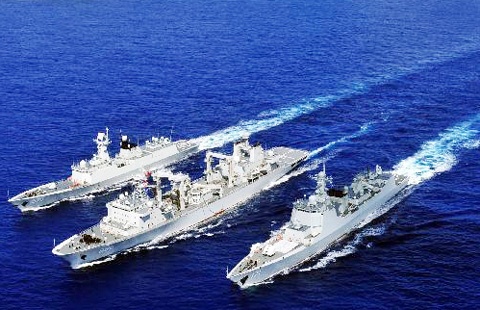
 Chinese fleet joins others for RIMPAC exercise
Chinese fleet joins others for RIMPAC exercise
 Obama visits native American reservation
Obama visits native American reservation
 Clinton has reasons to run at her ready
Clinton has reasons to run at her ready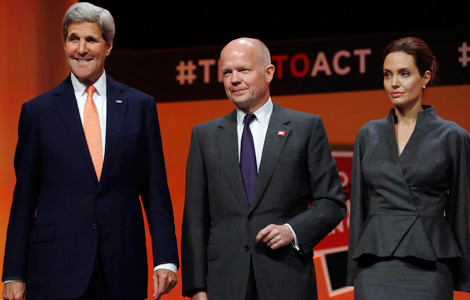
 Angelina Jolie shines at summit against sexual violence
Angelina Jolie shines at summit against sexual violence
Most Viewed
Editor's Picks

|

|

|

|

|
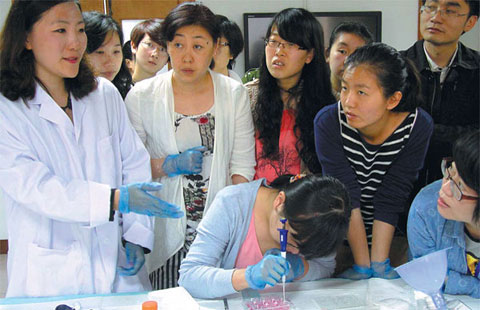
|
Today's Top News
US should 'attune itself to China's rise'
Former US congressman: Diaoyu belongs to China
US options could help combat advances by Iraqi militants
US applauds voting in Afghan presidential polls
Oregon high school shooter's parents offer apology
Army: Bergdahl 'looked good' after returning to US
Envoy rebuts Vietnam, Philippines on sea issue
Cui: China poses no threat to US
US Weekly

|

|

